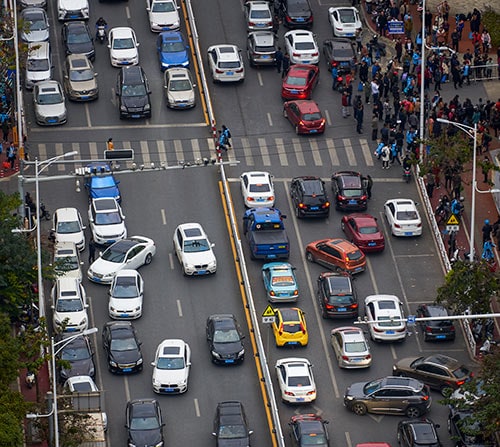Improve Air Quality
Transportation-related air pollutants are one of the largest contributors to unhealthy air quality. Exposure to traffic emissions has been linked to many adverse health effects including premature deaths, cardiac symptoms, exacerbation of asthma symptoms, diminished lung function, and increased hospitalization. Motor vehicles are a significant source of air pollution in urban areas.
Recommendations

- Reduce human exposure to transportation-related air pollution and the adverse health impacts associated with air pollutants by:
- Retrofitting existing diesel vehicles with current pollution control measures to reduce emissions.
- Requiring effective inspection and maintenance programs for medium- and heavy-duty vehicles.
- Providing incentives for motor vehicle drivers to purchase vehicles with technologies designed to control pollution and reduce emissions.
- Strengthening congestion mitigation and air quality programs.
- Seeking solutions to reduce pollution generated by ports, high-volume roads and railroads.
- Improve the respiratory and cardiovascular health by improving air quality. Possible strategies include:
- Promoting transportation choices and innovative transportation measures that reduce emissions.
- Shifting to active transportation and public transportation modes.
- Reducing vehicle miles traveled per capita.
- Support policies that reduce environmental pollution (including greenhouse gas emissions) by changing to renewable energy sources, strengthening fuel efficiency policies, and expanding programs that reduce the number of vehicles in the fleet with poor fuel economy.
Read about other recommendations
Error processing SSI file
